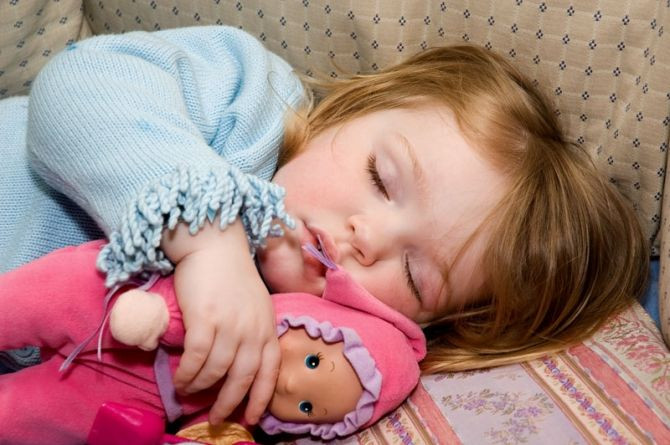More Behavioral and Emotional Problems Linked to Snoring Children

Children with sleep-disordered breathing like snoring, mouth breathing, and apnea are more likely to develop behavioral and emotional problems, according to a new study published on Monday.
"Parents and pediatricians alike should be paying closer attention to sleep-disordered breathing in young children, perhaps as early as the first year of life," said study leader Dr. Karen Bonuck, professor of family and social medicine and of obstetrics & gynecology and women's health at Albert Einstein College of Medicine of Yeshiva University.
Researchers conducted a study of more than 11,000 children who were followed for over six years and found that those with sleep-disordered breathing were 40 to 100 percent more likely to develop neurobehavioral problems by the age of seven, compared to those without breathing problems.
Researchers studied five behavioral measures inattention or hyperactivity, emotional symptoms like anxiety and depression, peer problems, conduct problems like aggressiveness and rule-breaking, and pro-social behavior like sharing and helpfulness.
“The biggest increase was in hyperactivity, but we saw significant increases across all five behavioral measures," Dr. Bonuck said about children with sleep-disordered breathing.
Researchers said that children with breathing disorders that peaked at earlier, at 6 to 18 months, had less serious behavioral problems later than children whose sleep disordered breathing peaked later at 30 months.
Investigators believe that sleep-disordered breathing causes behavioral problems because of decreased oxygen levels and increased carbon dioxide levels in the prefrontal cortex, which interrupts the restorative processes of sleep and disrupts the restorative processes of sleep. Researchers explained that the behavioral problems caused by bad breathing consist of impairments in the brain’s executive functioning like, paying attention, planning ahead, organizing, and being able to suppress behavior and to self-regulate emotion and arousal.
"Although snoring and apnea are relatively common in children, pediatricians and family physicians do not routinely check for sleep-disordered breathing," said Dr. Bonuck. "In many cases, the doctor will simply ask parents, 'How is your child sleeping?' Instead, physicians need to specifically ask parents whether their children are experiencing one or more of the symptoms—snoring, mouth breathing or apnea—of SDB."
"As for parents, if they suspect that their child is showing symptoms of SDB, they should ask their pediatrician or family physician if their child needs to be evaluated by an otolaryngologist (ear, nose and throat physician) or sleep specialist," she added.
"Until now, we really didn't have strong evidence that SDB actually preceded problematic behavior such as hyperactivity," said co-author Dr. Ronald Chervin, professor of sleep medicine and of neurology at the University of Michigan, in a statement. "Previous studies suggesting a possible connection between SDB symptoms and subsequent behavioral problems weren't definitive, since they included only small numbers of patients, short follow-ups of a single SDB symptom, or limited control of variables such as low birth weight that could skew the results. But this study shows clearly that SDB symptoms do precede behavioral problems and strongly suggests that SDB symptoms are causing those problems."
The findings were published on Monday in the journal Pediatrics.



























